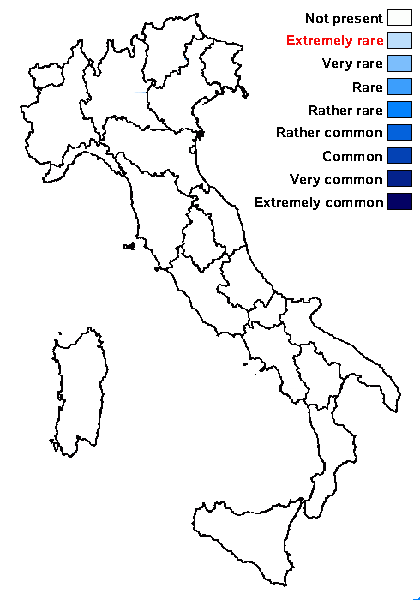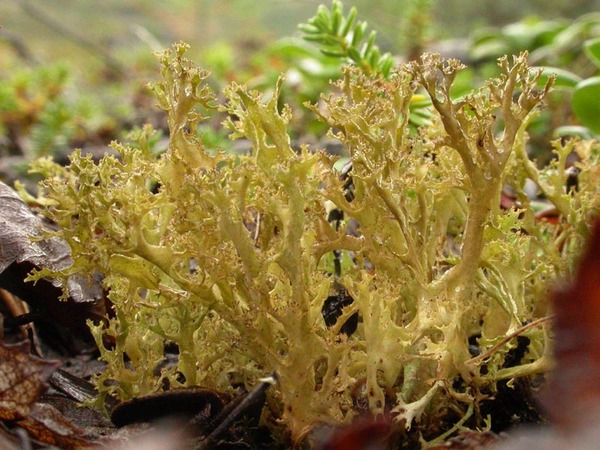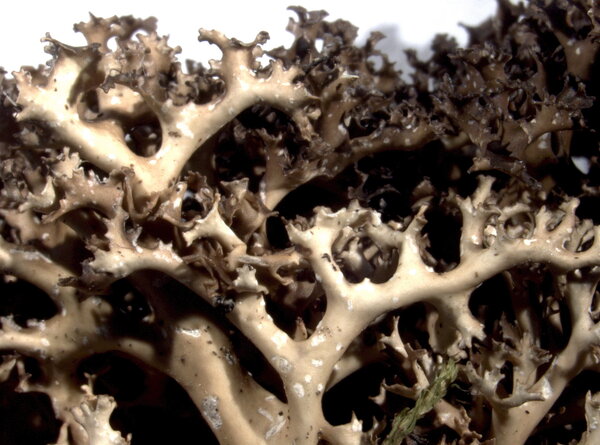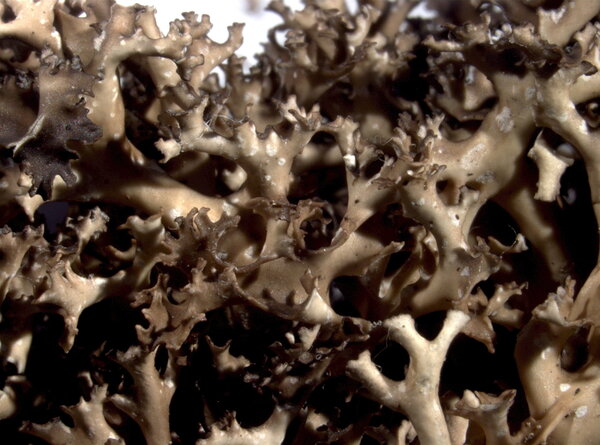Cetraria delisei (Schaer.) Nyl.
in Fries, K. svenska Vetensk-Akad. Handl., n.f. 7, 2: 11, 1867. Basionym: Cetraria islandica var. delisei Schaer. - Enum. Crit. Lich. Europ.: 114, 1850
Synonyms:
Distribution:
Description: Thallus fruticose, dichotomously branched into strap-shaped laciniae, often forming dense, up to 5-8 cm tall, loosely attached tufts. Laciniae erect, flattened, dorsiventral, canaliculate, 2-8 mm wide in central parts, 0.5-1 mm wide in apical parts, with pointed tips, the margins with scattered, up to 0.5 mm long, spinulose projections. Upper surface brown to dark brown in apical parts, slightly glossy, the basal parts yellowish; lower surface longitudinally ridged, usually paler than upper surface, with distinct whitish pseudocyphellae. Cortex 2-layered, with an external layer of brownish, thick-walled, paraplectenchymatous cells, and an inner layer of periclinally arranged hyphae; medulla white. Apothecia very rare, lecanorine, submarginal on expanded lobes. Asci 8-spored, narrowly clavate, with a small axial body and a distinct, K/I+ blue ring-structure in the rather large tholus, approaching the Lecanora-type. Ascospores 1-celled, hyaline, ellipsoid, 6-8.5 x 2-2.5 μm. Pycnidia blackish brown, immersed in the spinulose projections. Conidia bottle-shaped, (4-)7-9 x 0.5-1.5 μm. Photobiont chlorococcoid. Spot tests: cortex K-, C-, KC-, P-; medulla and pseudocyphellae K-, C+ pink, KC+ pink, P-. Chemistry: medulla with gyrophoric and hiascic acids.Note: an arctic-alpine species of acid soil in rather humid situations; very rare in the Alps, but known from several stations in Austria, some of which are not very far from the Italian border. To be looked for in Italy
Growth form: Fruticose
Substrata: soil, terricolous mosses, and plant debris
Photobiont: green algae other than Trentepohlia
Reproductive strategy: mainly sexual

Predictive model
Growth form: Fruticose
Substrata: soil, terricolous mosses, and plant debris
Photobiont: green algae other than Trentepohlia
Reproductive strategy: mainly sexual

Predictive model
 INDEX FUNGORUM
INDEX FUNGORUM
 GBIF
GBIF





